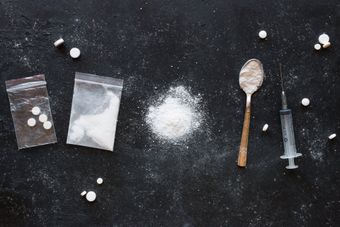Things about Hanlon Law

In some states, the protection of insanity will certainly enable an accused to avoid jail yet will certainly call for that the defendant be kept in a psychiatric center for treatment. In a similar way, the protection of intoxication Depends on the concept that the defendant can not fulfill all of the aspects of the criminal activity because he or she did not comprehend what he or she was doing (orlando florida laywer).

The Definitive Guide for Hanlon Law
In a similar way, error of law applies when a criminal accused thought his or her activities were authorized. This protection uses in just really limited conditions. Protection (or protection of another) Duress Necessity One more category of defenses applies when the accused committed the criminal activity but suggests that she or he was validated in doing so.
An offender might say, for example, that he did shoot an intruder but did so in self-defense due to the fact that the burglar was endangering him with a knife. Under a protection of discomfort, the criminal accused says that she or he just devoted the crime due to the fact that he or she was required to do so by another person.
Under a necessity protection, the criminal accused might suggest that he or she committed the criminal activity in order to prevent a more significant damage. The accused may contend that it was required for him to take a cars and truck in order to chase after down one more person that was intimidating to make use of an eruptive tool.
Initially, the offender might suggest that no criminal activity took place due to the defense of permission. For example, the defendant might suggest that although sexual relations happened, it was not rape because there was consent. He may argue that there was no assault because the target consented to the damage.
Getting The Hanlon Law To Work
Third, the accused might argue entrapment. Entrapment happens when the federal government causes an individual to devote the crime and after that attempts to punish the person for it. The offender may argue that no criminal offense would certainly have taken place but also for the federal government's incentive, as well as he or she should as a result not be held liable.
To effectively convict a criminal accused, the government needs to confirm the defendant was guilty beyond a sensible uncertainty. The most common defenses criminal accuseds may increase can be grouped into 2 basic groups initially, rejecting the accused did anything (including the alibi defense), and also 2nd, recognizing the defendant did the act but just under mitigating conditions (consisting of self-defense, madness, entrapment, and intoxication defenses).
If an accused is accused of devoting a robbery yet can show that he was at the dentist or conference with a repairman during the time of the crime, he might be successful in his alibi protection. Self-defense was the crucial concern raised in the current George Zimmerman situation. https://justpaste.it/bf6uf.
The insanity protection is a very intricate defense, but it is usually based upon the suggestion that punishment is only warranted if the accused is capable of controlling their behavior. Due to the fact that a few of the mentally unwell are not with the ability of differentiating right from wrong, the craziness defense stops them from being criminally accountable.
Hanlon Law for Dummies
If, nevertheless, a jury thinks that the defendant was predisposed to devote the criminal activity anyway, this protection won't be successful. A defense of involuntary intoxication may show effective.
Below are a handful of methods which an offender might insist a successful defense. To convict a criminal defendant, the prosecutor has to verify the offender guilty beyond an affordable doubt. As Get the facts part of this procedure, the offender is provided an opportunity to offer a protection. A defendant may install a protection by continuing to be quiet, not offering any witnesses and saying that the prosecutor fell short to show his/her instance.
There are numerous other types of defenses, from "I didn't do it" to "I did it, yet I was too drunk to understand what I was doing."All individuals charged of a criminal activity are legally presumed to be innocent till they are founded guilty, either in a test or as an outcome of begging guilty.
Comments on “The smart Trick of Hanlon Law That Nobody is Discussing”